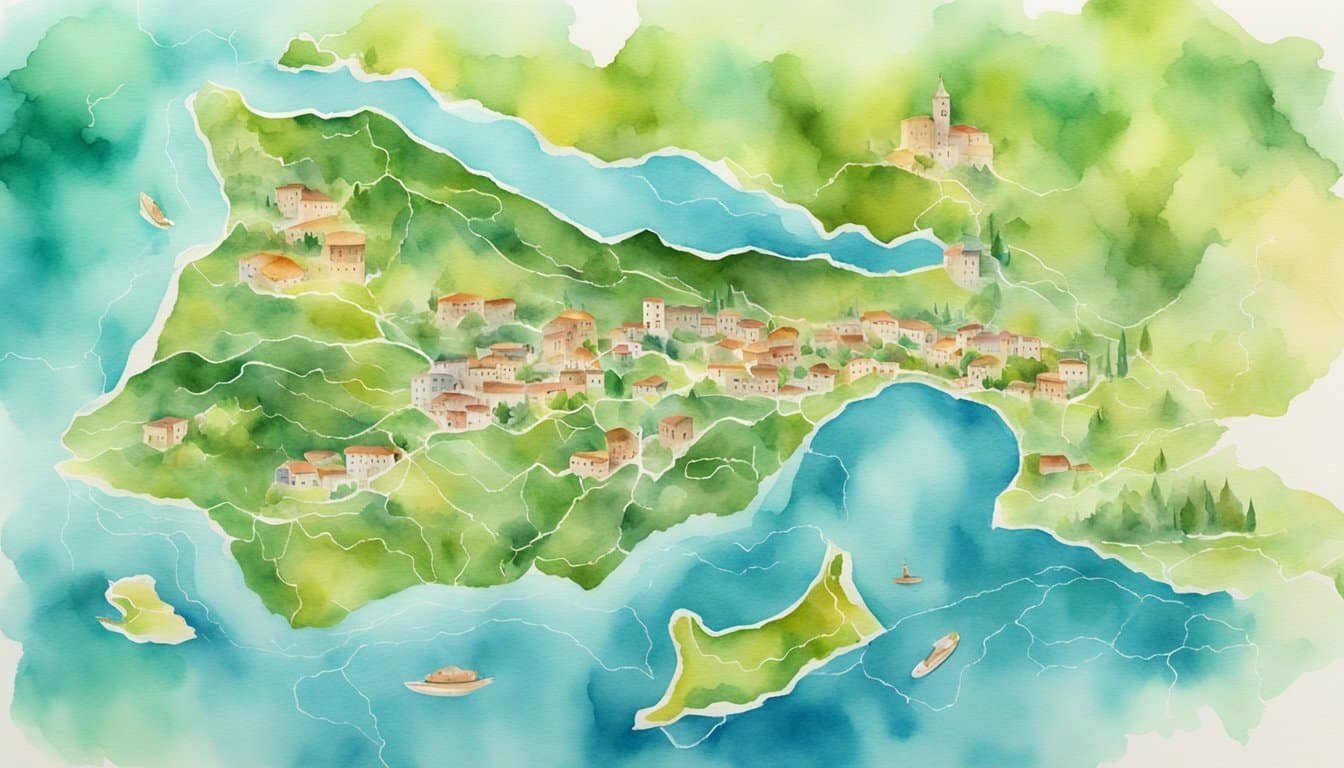Understanding Basque DNA
The unique genetic tapestry of the Basque people reveals a fascinating blend of antiquity and specificity. Scientific studies have peeled back the layers of Basque DNA, presenting a story of survival, isolation, and heritage that stands out in the European context.
Historical Context
Basques have long been a focus for anthropologists and geneticists, intrigued by their distinct heritage within Europe. The analysis of ancient DNA indicates a considerable degree of genetic continuity back to Pre-Neolithic times, setting Basques apart from other European groups subjected to later migrations.
Geographical Influence
The Basque region, straddling Northern Spain and France, has been pivotal in shaping the genetic patterns of its inhabitants. With the Pyrenees to the east and the Atlantic to the north, geographical barriers have contributed to genetic isolation and heterogeneity among the Basque populations.
Cultural and Linguistic Isolation
Non-Indo-European by nature, the Basque language, or Euskara, has encapsulated the group’s isolation. Linguistics played a role akin to geographical barriers, contributing to a cultural barrier that limited gene flow with surrounding Indo-European groups. This isolation is mirrored in the distinct genetic markers found in Basque genomes.
Scientific Research and Studies
Modern genetic analysis has revealed genetic singularity among the Basques. Studies have identified unique genetic patterns, suggesting that the Basque people are one of the most genetically distinct in Europe. The findings imply limited gene flow with other Iberian populations, emphasizing a long-standing isolation. For example, unique mitochondrial DNA variations imply that the Franco-Cantabrian region harbors the maternal legacy of the Basques, adding to our understanding of the genetic landscape of Southwest Europe.
Research conducted by Mattias Jakobsson at the UPF Department of Experimental and Health Sciences has offered insights into the genetic origins of the Basques. His team’s extensive work, utilizing both biological anthropology and archaeology, underscores the cultural and genetic singularity of the Basque people through the analysis of ancient genomes.
Likewise, the community’s DNA has been linked to the mitochondrial diversity in northern Navarre, shedding light on the reproductive strategies and social structures during different historical epochs, from the Iron Age to well into the Middle Ages.
The studies remind us that our genetic fabric is a woven account of human survival, adaptation, and cultural endurance. Basque DNA, with its rich history and genetic lore, provides a unique lens through which we can view our shared human journey.
Basque Identity and Its Origins

The Basque people’s roots are a captivating mosaic of history and genetics, distinct from their neighbors on the Iberian Peninsula. Their unique heritage is woven into the fabric of their language and customs, tracing back to ancient inhabitants of Europe.
Genetic Uniqueness
Basque DNA stands out from other European populations due to specific genetic markers that suggest a high degree of genetic singularity. Studies of mitochondrial DNA, passed from mother to offspring, shed light on the distinct nature of Basque ancestry, supporting the idea of Basques being one of the earliest remnants of pre-Neolithic Europe.
Links to Other Populations
While the Basque genetic profile is unique, there have been interactions with other groups throughout history. Genetic analysis reveals evidence of gene flow with populations such as the pastoralists from the steppe, the ancient North African groups, and the Sardinians, which counters the myths of Basques being completely isolated since the Paleolithic or Mesolithic era.
Basque Language as a Key
Euskara, the Basque language, is a non-Indo-European language and is considered a critical element in understanding Basque identity. Linguistic studies show that while Euskara shares some features with other languages, it stands apart as a linguistic isolate, adding to the enigma of the Basque’s origins. The language’s survival through centuries without being conquered by Indo-European-speaking groups speaks volumes about the resilience of Basque culture.
Archaeological Contributions
Archaeological sites like the Atapuerca cave system, particularly El Portalón, offer vital clues to the life of ancient Basque populations. Stone Age human skeletons excavated from these areas provide genomes that enrich our understanding of the Basque’s prehistoric lifeways and how they might have interacted with the European farmers of the Neolithic era as well as other hunter-gatherer groups inhabiting the Franco-Cantabrian region.
For in-depth insights, explore mitochondrial DNA variation in Basques, and delve into how Basque DNA unveils different evolutionary histories for Diaspora populations.

